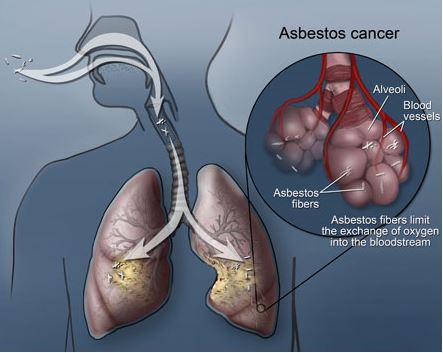
On June 20, 2013, three professional associations namely the Association of Occupational and Environmental Diseases, the Occupational Health Nursing Association of Thailand and the Occupational Health and Safety at Work Association issued a statement to call for a ban on asbestos in all products. In the statement, they propose the government ban the import of chrysotile asbestos immediately and prohibit products containing chrysotile asbestos in three years from now to protect people from the danger of asbestos.
Prof Dr Surasak Buranatriwet who represents the Association of Occupational and Environmental Diseases said the association joined a fact-finding committee on the health impacts of asbestos. The probe results from a cabinet resolution reached on April 12, 2011, that assigned the Ministry of Public Health to study the health impacts. The committee has had four meetings to find the facts. The three professional associations thus decide to make their public announcement to insist that chrysotile and all kinds of asbestos cause mesothelioma. They base their announcement on academic evidence and information and they want the fact-finding committee to conclude its study quickly for the sake of public safety.
The associations propose the government take five actions quickly. Firstly, it should stop the use of all kinds of asbestos, prohibit the import of chrysotile asbestos immediately and ban products containing chrysotile asbestos in three years. Secondly, the government should disseminate information about safer substances that can replace asbestos. Thirdly, the government should impose existing measures to prevent exposure to asbestos. Fourthly, the government should improve early diagnosis, treatment, rehabilitation, and surveillance. Fifthly, the government should set up a fund to help people affected by asbestos.
Assoc Prof Dr Wantanee Phanprasit of the Faculty of Public Health of Mahidol University who represents the Occupational Health and Safety at Work Association said asbestos was a long-standing issue. The international community is well aware of its danger and many countries already terminate its use and import. If Thailand insists on using it, human resources and control equipment must be developed and impacts must be monitored. However, nothing can completely guarantee safety.
Source: Naew Na Newspaper on June 21, 2013
Photos source : http://www.mesothelioma.com/asbestos-cancer/
